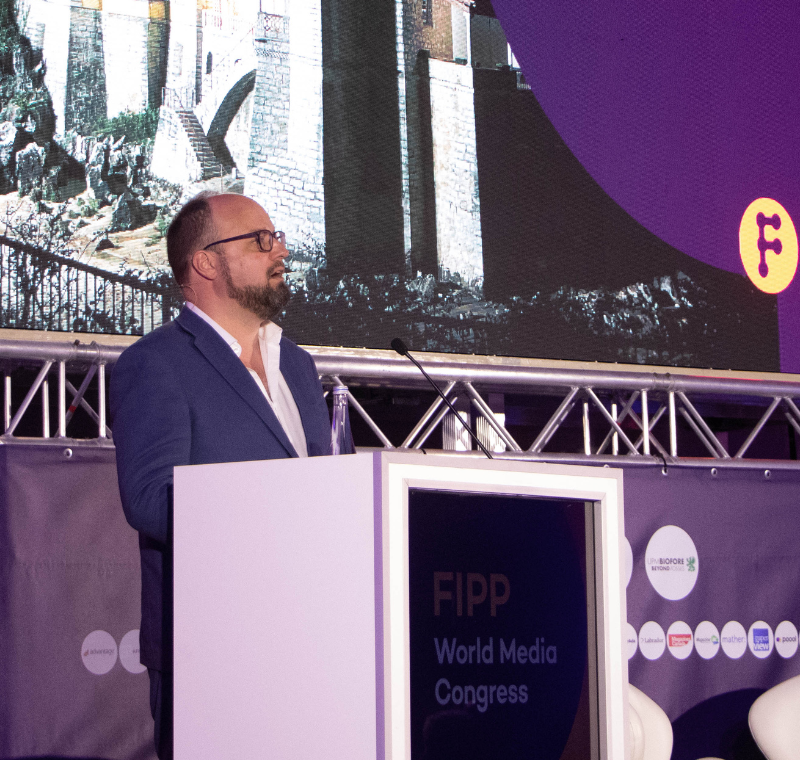The changing role of editors
I was an Editor once.
Admittedly it was some time ago, in that strange world before the internet, before the mobile phone, before the Twitter, before just about everything that now seems to occupy our every waking hour.
Back in that faraway time – the late ’80s and early ’90s – I was lucky enough to be the Editor of two iconic British magazines, firstly the now dead and much lamented Smash Hits, followed by a three-year spell as the Launch Editor of Empire, now still very much alive and kicking as the world’s biggest-selling movie magazine.
In the immortal words of Gladys Knight and her Pips, can it be that it was all so simple then? My memory of both jobs, admittedly blurred through years of industrial-level drinking and the passing of time, is that I would spend almost all of my days and nights thinking up and producing the best possible editorial – words and pictures – for the magazine, attend the odd meeting with those strange creatures from the marketing department, and then go down the pub to celebrate another issue successfully put to bed and to start to plan the next one.
That was pretty much it. No talk of data, big or small, no events to organise, no dealings with advertising, native or otherwise, and no platforms to worry about other than those from which you got the train to the printers. I may be exaggerating to make the point, but honestly not that much. Needless to say, I loved every minute of it, blithely assuming that the world would be ever thus.
It is little wonder then that in my current role as CEO of the UK Professional Publishers Association (PPA), I am filled with such profound respect for the Editors of today. While I spend most of my time with our publishers – the clue is in the job title – I also try stay close to our Editors, taking them out for lunch, asking them to speak at our various events, and moderating panels with them such as the one taking place at the FIPP World Congress in Toronto.
What is clear to me is that for all these Editors, from whichever publishing house in whatever part of the world, the job that they now do is utterly unrecognisable from the one I did a mere 25 years ago. Where I looked after the editorial and that was pretty much it, they now get involved in all aspects of the brand. Where I would spend most of my time on the shop floor shooting the breeze with the team, they now spend a lot of their time in high-level internal and external meetings. And, crucially, where I had just one thing to produce – a printed magazine – they now have responsibility for a whole host of so-called platforms, from the page to the website, the phone to the tablet, the live event to the 24/7 social media engagement.
It is on this latter point where any lingering nostalgia for the good old days is outweighed by sheer envy at the opportunities these Editors now have to communicate with their audience (and vice versa). Even on Empire, an early adopter of online, it was still pretty much one-way traffic. We would issue our lofty pronouncements on this or that film, and, bar the occasional letter, it was very much like shouting into a void. And a void that you only got to visit 12 times a year, as opposed to the constant live feedback that now comes flowing in from your audience, helping you shape your priorities, guiding you on what is obsessing your target consumer right here right now.
And there is of course one central theme that unites all Editors throughout the ages. This is the need to produce world-class editorial – content if you must – that your audience simply has to have, that he or she just cannot do without. The gift for knowing what this is and the ability to produce it in all its glory transcends any talk of platforms, and will always remain paramount whatever the technology used to produce and to consume it. By the time of the next FIPP Congress in 2017 I may well be able to read Empire on a chip automatically inserted into what is left of my brain. Great. I will only want to do that, however, if, to state the bleeding obvious, the thing I am being asked to read turns me on and satisfies my needs like nothing else on God’s green earth.
So all of the above is why I am so excited about our Toronto panel on The Changing Role Of The Editor. I expect we will hear a lot about some of the changes referred to here, but also a lot about that unique magazine media creative spark that remains undimmed throughout the ages. Do come along and join in. You might even learn something, and at the very least you will make an old Editor happy.
The panel participants are:
- Ariel Foxman, editorial director, InStyle and StyleWatch, USA
- Brenda Díaz de la Vega, editor-in-chief, Harper’s BAZAAR, Mexico and Latin America
- Jane Johnson, executive content director, Bauer Media, UK
- Olivier Royant, editor-in-chief, Paris Match, France
Near 80 speakers from around the world will be at the FIPP World Congress, taking place from 13-15 October 2015 in Toronto, Canada.
- Register here to join 700-800 international delegates at the Congress
- See the provisional programme here
More like this
Meet the FIPP World Congress moderators and hosts








